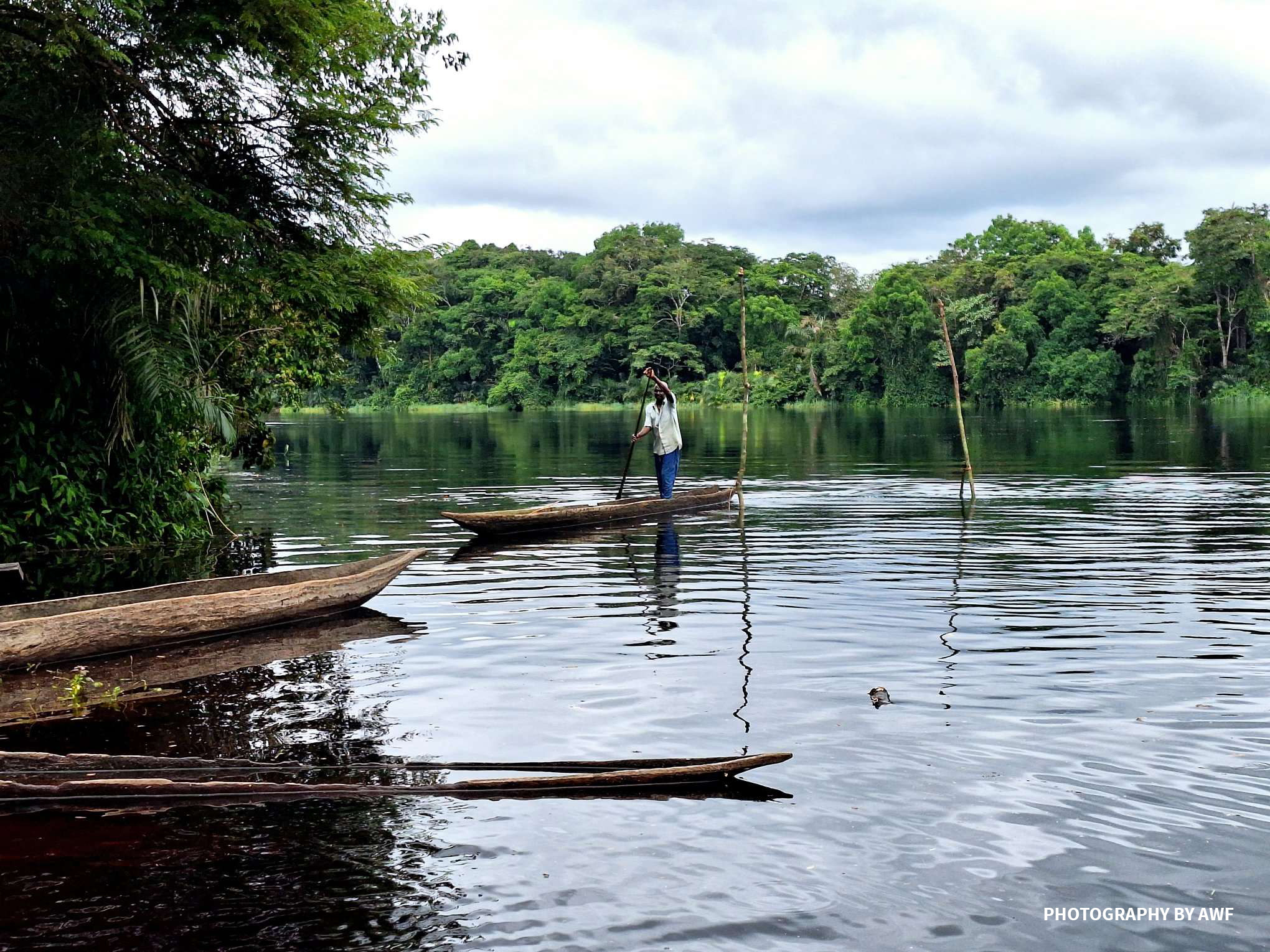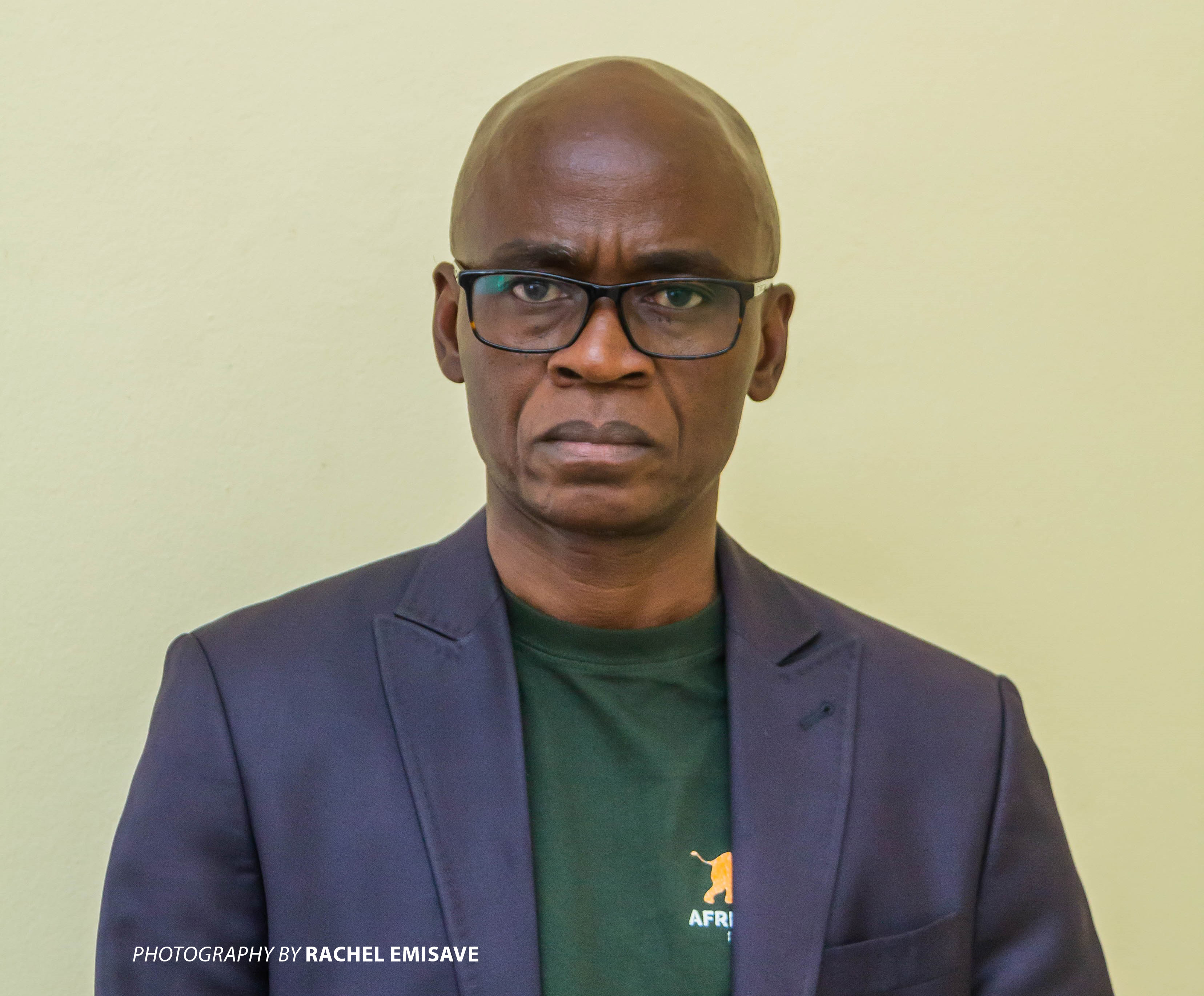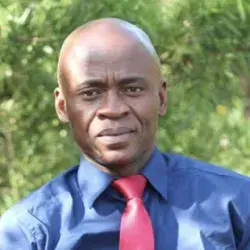2023 in Review: Strengthening Adaptation Strategies to ensure the Prosperity of the Congo Basin and its Populations

Every day, Africa and Africans lead on issues concerning the planet's future. Discussions at international and local levels continue to prove that our mission to build a future for Africa where both people and wildlife thrive is noble.
2023 was marked by two significant conferences, especially for AWF in DRC, COP28, and the 3 Basins Summit. These conferences have demonstrated the urgent need for Africans to stop evolving in isolation but rather to join forces with the global community and position themselves as part of the solution to the issues at hand.
Antoine Tabu, AWF Country Co-ordinator in the DRC, explains that "If we are to assess the efforts made by AWF as an organization, I think we need to look beyond the indicators set out in our strategy and see the impact on a much wider scale." He shares more of his thoughts in this interview.
Reflecting on 2023, what achievements are you most proud of?
As a conservation NGO, our most significant achievement is the increasing number of key species in our landscapes and the protected areas where we work. This trend demonstrates that proper and sustainable management can be achieved through collaborating with local communities and the wildlife agencies operating in the region. We are working tirelessly to maintain these forests and are witnessing their significant re-population with wildlife. Light-faced chimpanzees and forest elephants are the key species we focus on in the landscape, and their numbers are rebounding. This is one of our greatest achievements this year.
Given the DRC's strategic position in the fight against climate change, participating in COP28 was also a significant achievement. We were pleased that the world recognized that large-scale restoration is achievable through strong partnerships. By adapting appropriate practices & approaches to local contexts, we can rethink our monitoring systems to involve local communities and indigenous peoples and fill in the main knowledge gaps in the restoration of the Basin.
AWF has already anticipated this proposed resolution in the DRC landscape, and we already have systems in place to pursue this approach and ensure that the Nationally Determined Contributions (NDCs) are understood by the communities we work with.
Can you share specific examples of successful projects or initiatives AWF undertook in your country in 2023? Are there specific examples of working with communities, caring for wildlife, or leading for wildlife?
In line with AWF's strategy, we are improving conditions for Institut Congolais pour la Conservation de la Nature (ICCN) and AWF staff in the Bili landscape by building new offices with durable materials. We have also built two checkpoints and trained eco-guards to help control movement into and out of the Bili-Uere Protected area, curtailing illegal activities. We also went on to raise awareness among the eco guards and the local community and set up a complaints management mechanism at Bili-Uere, which enables us to track and assist the authorities in dealing with the many complaints from the community.
We have also provided seed capital for businesses in the Maringa Lopori Wamba landscape in partnership with Village Entreprise, an implementation partner. Helping reduce the number of women involved in bushmeat trade with new opportunities to pursue a sustainable livelihood.
In Bili-Uere, we agreed with the community to grow crops outside the predetermined elephant corridor after conflict arose when the Hilo elephants destroyed their crops. This was a big win for both people and wildlife.
We have continued to train officers at Kinshasa airport and the port of Matadi in the identification and detection of illegal wildlife products and have provided them with crime scene kits through the NGO Juristes pour l’Environnement au Congo (JUREC), our implementing partner in combating wildlife crime in the DRC. We also helped the ICCN set up a unit of OPJs for its general management and facilitated their training, culminating in their swearing-in early next year.
We also had the pleasure of welcoming communication students for discussions on their future careers as spokespeople for Congolese and African biodiversity. We had the pleasure of demonstrating to these young people just how significant their involvement in protecting and conserving biodiversity in the Congo basin is, given the fact that the youth form the majority of Africans and that the future of our continent and the globe is in their hands.
Every journey has its challenges. What notable challenges did AWF in DRC face in 2023, and how did the team navigate them?
Over and above the logistical challenges we face daily in DRC landscapes, this year, we have experienced the effects of climate change like never before. We have seen more than fifteen rivers break their banks, causing inaccessibility to our field staff, who then have no alternative means to access our work areas. The heavy rainfall experienced this year delayed the implementation of several activities, from the deployment of patrols to hampering the efficiency of our solar-based communication systems and hindering timely correspondence between the field teams and our Kinshasa office. We, however, were quick to develop adaptive management systems, and with great teamwork from all our staff, we did our best to stay on course.
As the Country Director, what excites you the most about the upcoming year? Are there any new partnerships, innovative projects, or developments you particularly look forward to in 2024?
I'm looking forward to receiving funding from diverse donors to allow us to implement our landscape conservation processes and ensure that habitat and biodiversity are appropriately managed with the necessary resources. This new funding will lead to new projects, collaborations, and partnerships at national, provincial, and local levels, and I'm very excited about that.

In terms of community involvement, I'm looking forward to assessing the progress and achievements of the 330 micro-businesses we have supported with seed capital. Observing how the local communities have taken up ownership of the ecosystem restoration plans, we helped them develop. I’m also looking forward to evaluating the number of lives, families, and homes our activities positively impact in the Maringa Lopori Wamba landscape.
I look forward to seeing the implementation of the resolutions adopted at the 3 Basins Summit in Brazzaville. Particularly on the need for scientific cooperation and capacity building so that the countries of the Congo Basin that are lagging behind in research can learn from those in the Amazon Basin about the state of research and the need to open up areas of cooperation for science.
The Democratic Republic of Congo will no doubt be at the center of global efforts to mitigate the effects of climate change. We are eager to see how these negotiations bring the world together in achieving a climate-resilient future, and one where not only Africa, but the world has a future where both people and wildlife thrive.
> Read more here about the work we do in DRC
